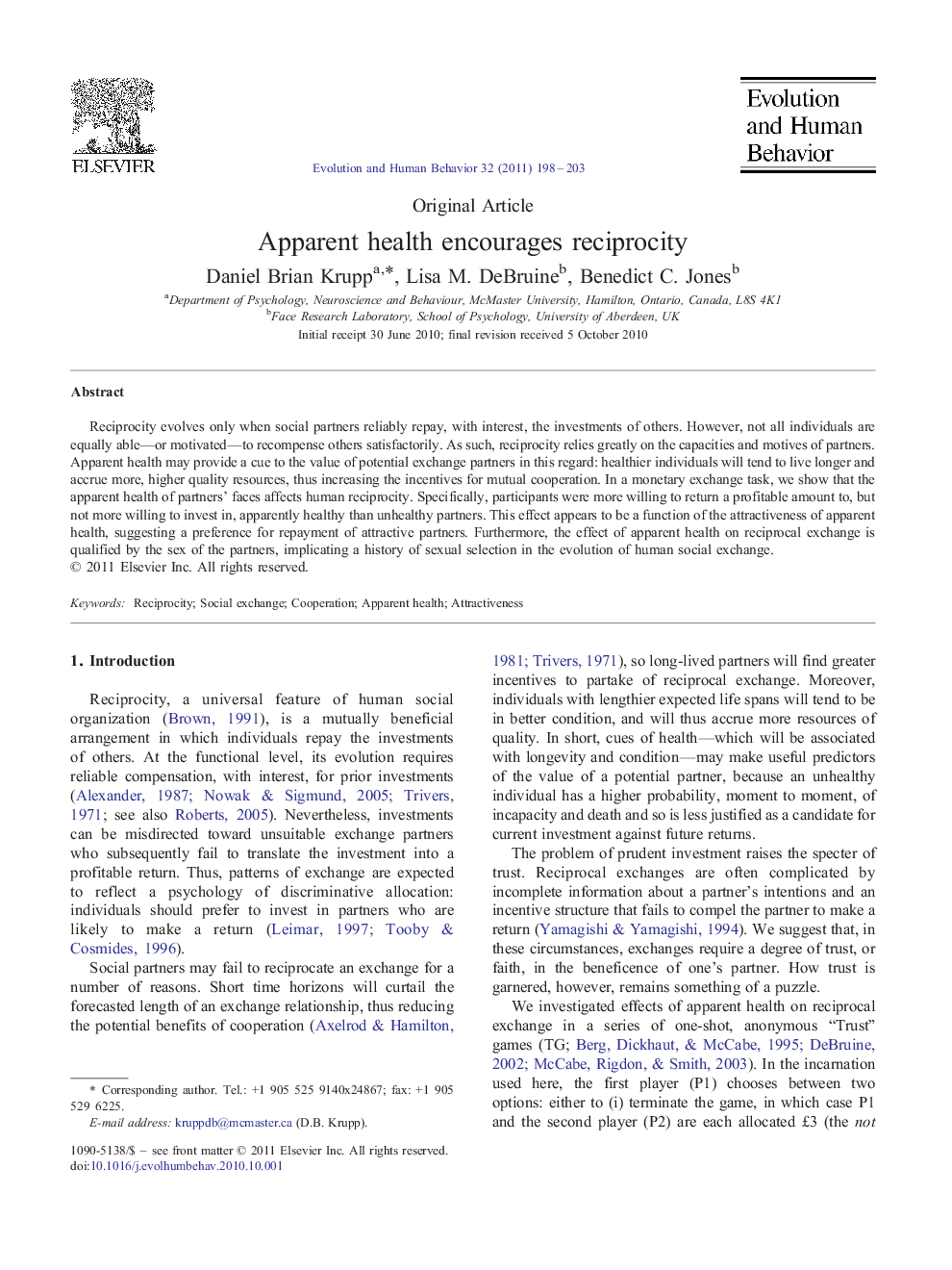| Article ID | Journal | Published Year | Pages | File Type |
|---|---|---|---|---|
| 943344 | Evolution and Human Behavior | 2011 | 6 Pages |
Reciprocity evolves only when social partners reliably repay, with interest, the investments of others. However, not all individuals are equally able—or motivated—to recompense others satisfactorily. As such, reciprocity relies greatly on the capacities and motives of partners. Apparent health may provide a cue to the value of potential exchange partners in this regard: healthier individuals will tend to live longer and accrue more, higher quality resources, thus increasing the incentives for mutual cooperation. In a monetary exchange task, we show that the apparent health of partners' faces affects human reciprocity. Specifically, participants were more willing to return a profitable amount to, but not more willing to invest in, apparently healthy than unhealthy partners. This effect appears to be a function of the attractiveness of apparent health, suggesting a preference for repayment of attractive partners. Furthermore, the effect of apparent health on reciprocal exchange is qualified by the sex of the partners, implicating a history of sexual selection in the evolution of human social exchange.
